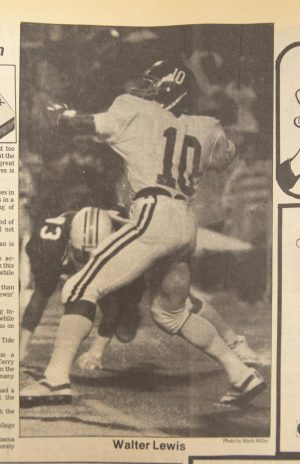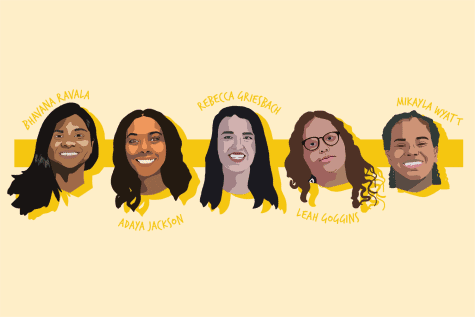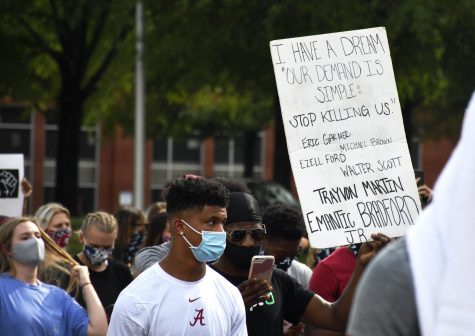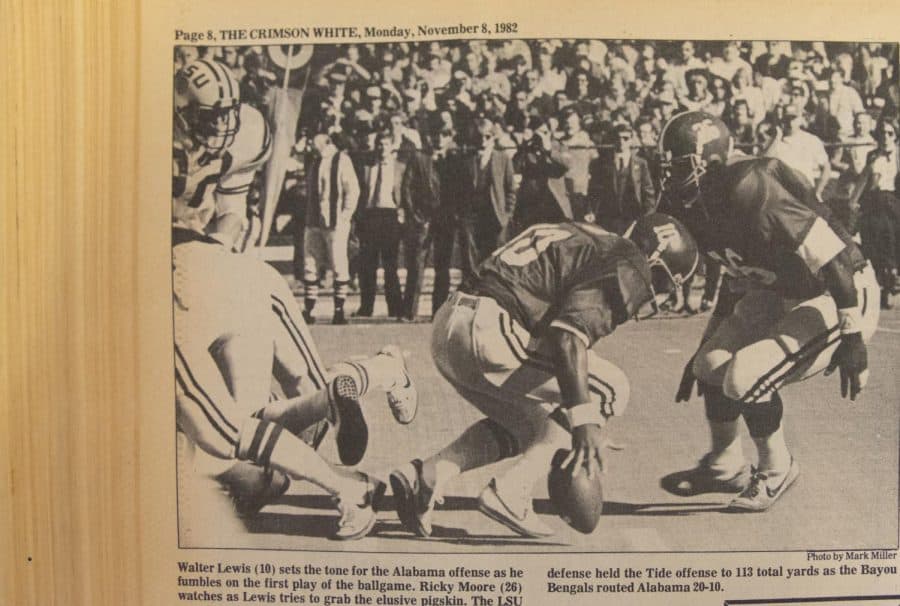‘He stood in the gap’: How a former player says Paul ‘Bear’ Bryant changed the game for Black players
Former quarterback Walter Lewis has fond memories of the late, great coach.
Read more from our Black History Month Edition:
Before Nick Saban, there wasn’t much debate on who was the greatest football coach of all time, especially in Alabama. Coach Paul “Bear” Bryant spent 25 years at the University as both the head coach of the football program and the athletic director.
What most remember about Bryant is the six National Championship titles he accrued while he was here, but Bryant was also a trendsetter. And to former quarterback Walter Lewis, Bryant was ahead of his time. Lewis was the first starting Black quarterback for the Crimson Tide.
By the time Lewis arrived on campus in 1980, former first-time Black athletes on campus like John Mitchell Jr., Wendell Hudson and Wilbur Jackson had gone through the athletics department and moved on to either professional sports or administrative roles within the department. Lewis said that winning is what mattered to Bryant, and he understood that having the best possible talent on the field, white or Black, would accomplish that goal.
“It was an opportunity I had positioned myself to obtain, so I looked at it from that perspective,” Lewis said. “I did not know or realize how that would impact my race while I was there. I knew that this was something new, but I just viewed it as a great opportunity to play.”
Lewis said Bryant understood the times and the place. He went on to say that Bryant understood what he was going through because of how he was brought up. Bryant grew up in poverty in Moro Bottom, Arkansas. Due to his father’s illness and the family’s poverty, he often stayed with his grandfather in Fordyce, Arkansas.
“Coach Bryant had been around a lot relative to this issue,” Lewis said. “This wasn’t the first time he dealt with the issue of race or color. Coach Bryant did a lot for race relations at the University and as well as across the country.”

According to many of Bryant’s biographers and profilers over the years, that upbringing allowed Bryant to understand the meaning of hard work and what it takes to win. After assistant coaching at Alabama in the late 1930s, Bryant would coach for almost 20 years before getting the opportunity to return to Alabama.
After a professional career, Lewis also returned to the University as an assistant coach. Looking back, Lewis said he does not recall being criticized for his race and position to his face, but he knew that those comments existed.
“A lot of the time, criticism was based on my performance as opposed to criticism based on the color of your skin,” Lewis said. “I’m not naive to believe that there wasn’t criticism because of the color of my skin, because people [still] comment about it today.”
For years Bryant battled against pro-segregationists like Alabama Gov. George Wallace to integrate the football team. In 1970, he finally won that battle. Although integration was not the final step to racial equality, Bryant finally set the team on the right path.
Bryant had scheduled a game with the integrated USC Trojans knowing it would be tough competition, with the hopes that state and university leaders, along with fans, would change their stance on integration.
The Crimson Tide were crushed 42-21 that day, and most of the game was dominated by USC running back Sam Cunningham, a Black athlete. He finished the day with 135 yards and two touchdowns. From that point forward, Bryant seemed set on integrating the football team. Cunningham had shown Alabama fans that Black athletes had just as much if not more talent than their white counterparts.
But the special bond that Lewis formed with Bryant went beyond the field. In his time on campus, there was more to life than just football. Having a legendary coach like Bryant stand at his side was extremely important to Lewis’s success.
“What was special about Bear Bryant for me and being a Black person that was playing for the University was that he stood in the gap for me,” Lewis said. “That’s all any player could ask for, someone to give you that opportunity, someone to give you that support, someone to stand up for you.”
Lewis played in Bryant’s last game as head coach. The Crimson Tide defeated the Illinois Fighting Illini 21-15 in the 1982 Liberty Bowl. He had announced his retirement shortly before that game.
“This is my school, my alma mater. I love it and I love my players,” Bryant said. “But in my opinion, they deserved better coaching than they have been getting from me this year.”
After the game reporters asked him what he would do now that he was retired. Bryant responded that he would “probably croak.” He passed away just four weeks later after a heart attack. His legacy continues to live far beyond what he could’ve imagined. It’s instilled in the players that he gave the chance to succeed when thousands of others wouldn’t have done the same.












